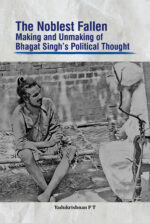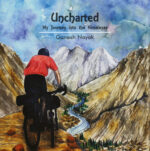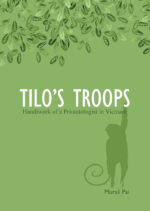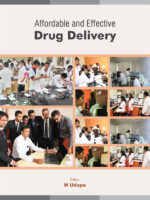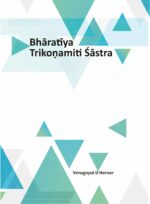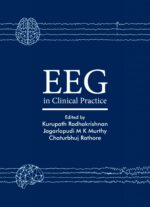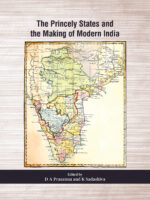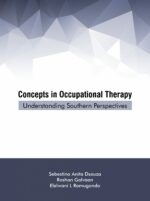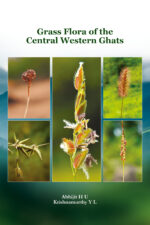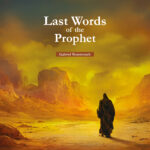-
Akka Mahadevi, the questioning poet-saint
₹255.00Author: D A Shankar
This book presents the mystical ruminations and literary excellence of Akka Mahadevi, the earliest example of a gender-liberated woman writer, credited with the composition of over four hundred and forty remarkably self-explorative Vachanas. Akka Mahadevi represents a powerfully authentic female voice of the radical, egalitarian Sharana Movement, which questioned the socially established barrier between genders and ushered in a world of socio-cultural equality.
In this book, the author explores the questioning spirit intrinsic to Akka Mahadevi’s life and writings, as she questions the widely held conventional norms: the traditional husband-wife relationship, her parents, elders; she questions Basavanna and Allama for their habituated patriarchal manner of speaking, and she bravely questions her personal deity whom she loves and adores. Apart from discerning a credible ‘history’ and background to Akka’s works, this book makes available a rendition of her selectively profound and memorable Vachana in modern English, that crosses the ?the gulf of language and the gulf of time.
Interested readers may write to us at mup@manipal.edu about purchasing the book.
-
The Noblest Fallen: Making and Unmaking of Bhagat Singh’s Political Thought
₹195.00Author: Yadukrishnan P T
The Noblest Fallen: Making and Unmaking of Bhagat Singh’s Political Thought puts forth a different approach to the politics of India’s quintessential revolutionary, Bhagat Singh, by probing into his constantly evolving revolutionary rhetoric and interrogating the various shifts in his ideological framework over the years. This book also attempts to understand how it was possible for Bhagat Singh to evolve and change when revolution often necessitated political actions, which were at many times considered violent and by extension immutable, by close reading the corpus of writings left behind by Bhagat Singh after his death.
Interested readers may write to us at mup@manipal.edu about purchasing the book.
-
Post Googlism and Other Short Stories
₹350.00Author: R C Natarajan
This collection of short stories is for the fast-paced millennials, whom the author calls “The Post Googlist Generation” who want everything hastily, at their finger-tips and on the go. The language has also shrunk in size to allow the pace. The world-view of this generation is that what cannot be done through an app cannot and should not be done. Their expectations of a story are a striking start, a quickly built middle and an interesting end. Stories in the collection seek to meet these expectations of this generation talking to them in their own language. They also echo the changing lives and changing aspirations of the time.
Interested readers may write to us at mup@manipal.edu about purchasing the book.
-
Uncharted: My Journey into the Himalayas
₹700.00Author: Ganesh Nayak
Ganesh Nayak found his calling in something totally out of the box. He developed an interest in cycling and quit his earlier job to cycle around India. His attempt to focus on health and fitness ultimately transformed into solo expeditions, as he wheeled his bicycle into Srinagar, and further went on to cover Ladakh, Himachal Pradesh, Uttarakhand, Nepal, Bihar, Uttar Pradesh, Madhya Pradesh, Maharashtra, Goa, Karnataka, the gruelling mountain circuits in the Himalayas, the Ring Road in Iceland, the Pamir Highway in Tajikistan and Kyrgyzstan. During the travels he was chased by monkeys, saw snow leopards and met similar spontaneous travellers. He currently serves as an Assistant Professor at the Department of Instrumentation and Control Engineering, Manipal Institute of Technology (MIT), Manipal. Apart from a Master?s degree in Digital Electronics he has also earned a diploma in Outdoor Education from National Outdoor Leadership School, USA. His research interest is in the field of Outdoor Education. When he is not preparing for his next bicycle tour, he is facilitating outdoor experiences to inculcate leadership and environmental stewardship amongst his students at MIT, Manipal.
Interested readers may write to us at mup@manipal.edu about purchasing the book.
-
A Birder’s Handbook to Manipal
₹655.00The third edition of A Birder’s Handbook to Manipal documents 260 species of birds observed in Manipal since 2009. It is more concise and informative than the previous editions, covers more species and has up-to-date maps and documentation notes. This edition also comes with a waterproof quick-ID guide for easy use in the field, as well as bird sounds. Ramit Singal is a former student of Manipal Institute of Technology. He founded the Manipal Birders’ Club and authored the first and second editions of this book. In the past, he has been associated with Centre for Wildlife Studies and Nature Conservation Foundation as well as a number of short-term projects across the country. He enjoys spreading the love for birds amongst others and has been working with bird-related citizen science projects over the past few years.
interested readers may write to us at mup@manipal.edu about purchasing the book.
-
Sati Kamale
₹240.00Author: S U Paniyadi Translators: B Surendra Rao, K Chinnappa Gowda
This eponymous novel is centred on Kamale, who is an embodiment of wifely virtue. For fifteen long years Kamale lives the life of a widow to the outside world, nurturing the hopes of reuniting with the husband one day. Alone in the room, each night she wears her marks of a married woman with the dagger gifted by Umesha next to her. It could be seen as an exposition on the then existing indigenous discourse in India in the 19th century and early 20th century. Kamale, in her rigorous commitment and in retrieving her husband from ‘death’, is fashioned after Savithri in an intertextual reference to Mahabharata’s episode of “Satyavan and Savithri”. The novel might look conservative for the present-day reader, but it is a representative literary work of the time when Paniyadi, among many others, wanted to regain the independent status of the Tulu language which had somehow slipped out of its pedestal.
Interested readers may write to us at mup@manipal.edu about purchasing the book.
-
Tilo’s Troops- Handiwork of a Primatologist in Vietnam
₹680.00Author: Murali Pai
In 1993, Tilo Nadler, an ageing German welder turned air-conditioning engineer, photographer, filmmaker and self-made biologist arrived in Vietnam for training foresters in Cuc Phuong National Park to secure the Park from poachers, hunters and vandals. Within two months, he is tasked with the care of two confiscated sub adult male Delacour’s langurs, a rare, endemic and critically endangered primate species. This book narrates Tilo’s story to start-up a world class rehabilitation centre for endangered primates against all odds in Vietnam. This book celebrates two possibilities. First, endangered primates are given a new lease of life at Endangered Primates Rescue Centre (EPRC) after their rescue from sordid conditions and joined-up with other survivors in captivity before their final release into appropriate habitat to establish troops. Second, the raising of troops or foot soldiers groomed by Tilo in the art and science of primate rehabilitation. Tilo’s abiding passion is to make both his troops gain a foothold in Vietnam.
Interested readers may write to us at mup@manipal.edu about purchasing the book.
-
Affordable and Effective Drug Delivery
₹600.00Editor: N Udupa
Affordable and Effective Drug Delivery book is a compilation of the research works guided by Dr N Udupa in the area of drug delivery. Over four decades, Dr Udupa has shared his proficiency and expertise to build up, strengthen and widen the knowledge and information about the development and delivery of various therapeutic dosage forms. Research work that he undertook over several years is presented briefly as a compilation of his research activities involving Novel Drug Delivery System, Liposomes, Niosomes, Nutraceuticals, etc. The book will not only inspire many young researchers but, will also be a guiding force to senior researchers in the academia and industry. More than 500 publications with over 5000 citations, about eight patents, half-a-dozen books, and research guidance of over 100 research scholars is a definitive testimony of his exemplary contribution to pharma education and research.
Interested readers may write to us at mup@manipal.edu about purchasing the book.
-
SuperHeavy Elements
₹800.00Authors: Gottfried Münzenberg
Today, we live in a time when natural elements, even the ones which are not found in Nature can be made artificially. Making chemical elements: a dream of mankind has come true. SuperHeavy Elements (SHE), much heavier than those in Nature, have recently been created and is the subject of this book. The author, an insider of SHE research, led the German group which discovered the first series of SHE created by cold fusion. The book takes you through the journey of discovering a new element and the historical development of the field. Besides picturing the author?s personal experiences, the book addresses the physics of the creation of the chemical elements in the universe and the artificial synthesis of SHE in the laboratory. This book is written for a broad readership to allow the readers to participate in the fascination and excitement of discovering a new SHE. The book is also educational as it includes basic physics and new developments of SHE research, besides the historical aspects of it. For those readers who are interested in more details of SHE research, a bibliography including popular scientific articles as well as original papers are introduced in the book.
Interested readers may write to us at mup@manipal.edu about purchasing the book.
-
Retro India
₹350.00Author: R M Rajgopal
Retro India is, in essence, a trip down the memory lane, meandering through the sixties, seventies, eighties and nineties of the twentieth century. Today’s youth would battle with the fact that India had experienced a sweeping change from what it was in just as recently as thirty years ago. What kind of a moribund economy could engender a continuing state of shortages, high inflation, low growth, a paucity of jobs, rampant smuggling, and a foreign exchange situation that was perpetually perilous! It took major political and economical transformations to remove the shackles that then bound the economy. This narrative provides a clear bridge between the then and now for the younger generations. And for the older reader, it provides a heap of nostalgia. In the latter half of the twentieth century, the changes in India have been vast and comprehensive. In these decades, economic indicators such as India’s growth in GDP rate, the proliferation of the number of Airlines in the Indian skies, the multiplying of car models, the flourishing of telephone connections and moving on to the world of mobiles, televisions going colour from black and white to operating with over a thousand channels, India turning digital, and so on clearly directs that India had taken a crucial turn in its history. India has changed. And how! The Indian consumer grins. This is notwithstanding the fact that poverty is endemic and the gulf between the rich and the poor.
Interested readers may write to us at mup@manipal.edu about purchasing the book.
-
The Other Face
₹550.00Author: Na Mogasale Translator: N T Bhat
Set in a fictitious village called Kanthapura in Kasaragod district, Mukhāntara spans across the life of seven generations of a Havyaka Brahmin family. A story about the realities of living in a society marked by caste distinctions, the desire to find communal harmony and the tribulations of the characters through the entirety of the novel, it is also a tale of changing times and people. After unexpectedly coming into possession of a huge portion of land, Thirumalēshwara Bhat of Īshwarīmūle becomes a satisfied man. But childless, Thirumalēshwara Bhat and his wife Pārvathakka decide to adopt Venkappaiah and also give shelter to his widowed mother, Rathnamma. Venkappaiah is to inherit Thirumalēshwara’s vast wealth but when Krishnaiah, the illegitimate child of Thirumalēshwara and Rathnamma is born, rivalry ensues. Through the overlapping narratives of the characters, we get a glimpse into their journey from tradition to modernity. The characters strive to reshape new values when old values are slowly questioned and erased as they move on and are swept along in the waves of globalization.
Interested readers may write to us at mup@manipal.edu about purchasing the book.
Also available on

eBook available on

-
Bhāratīya Trikoṇamiti Śāstra
₹550.00Author: Venugopal D Heroor
Indian Trigonometry was developed as a powerful mathematical tool for Siddhantic Astronomy. The book, Bharatiya Trikonamiti sastra (Hindu Trigonometry) deals with all the relevant topics of Indian trigonometry, including trigonometrical identities and other formulas, trigonometrical tables, methods of interpolation and trigonometrical series, etc. The subject matter is discussed in eleven chapters divided into 80 sections and 50 sub-sections, involving translations of 250 verses spread over in 38 classical Sanskrit works and based on 42 research articles published in 16 research journals. By including material of the late Aryabhata School or Kerala Aryabhata School, the author has made the book comprehensive and up-to-date. Indeed, the book is fascinating and significant. It is a definite contribution in the study of the history of Indian mathematics. The book is the English version of the Kannada book of the same title.
Interested readers may write to us at mup@manipal.edu about purchasing the book.
-
A Shrine for Sarasamma
₹180.00Author: Shivarama Karanth Translator: D A Shankar
A Shrine for Sarasamma is the English translation of Sarasammana Samadhi written by K Shivarama Karanth in 1937, in his early thirties. It offers one of the most authentic and searing accounts of Indian womanhood, which consistently, and through the ages, has suffered deep anguish, humiliation and crushing insult from the oppressive patriarchal culture prevalent in all parts of India and among all castes and classes. The novel is a classic in Kannada and the English translation is an attempt to bring to the English reading audience a taste of the regional classic.
Interested readers may write to us at mup@manipal.edu about purchasing the book.
-
Dhvani and Epiphany: Essays in Criticism
₹270.00Author: Prabhaker Acharya
Dhvani and Epiphany examines the work of major Indian poets like Nissim Ezekiel and Arun Kolatkar; the struggle of young poets to find an audience; and the art of fiction. But its main focus is on the nature of creativity. How does an artist communicate his meaning? What makes a work genuinely creative? Through a sensitive exploration of poetry- ranging from the simple poems of a child, Poorna Prajna, to the complex “Byzantium Poems” of Yeats- the first seven essays try to show how a poem comes to life when it speaks to us and we listen to its dhvani and respond.
Even in fiction, it is not all realism. There is irony in exploring the paradoxical nature of reality; events taking on symbolic overtones; and epiphany, moments of illumination and insights – when surprising correspondences are seen. Writers cannot surprise and delight their audience if they themselves are not surprised and delighted by such insights.
Interested readers may write to us at mup@manipal.edu about purchasing the book.
-
EEG in Clinical Practice
₹2,500.00Editors: K Radhakrishnan, Jagarlapudi M K Murthy, Chaturbhuj Rathore
EEG in Clinical Practice is a comprehensive, easy-to-read, and well-illustrated book on scalp EEG. Through the text in its 21 chapters, 553 figures, and 94 tables describes practically every aspect of the scalp EEG including pathophysiology, technical challenges, and its value and limitations in the diagnosis of epilepsy and related disorders. Some of the recent advances such as EEG monitoring in intensive care units, quantitative EEG, and high frequency oscillations are also covered. Adhering to the systematic approach to reading and interpretation of the EEG, depicted in the final chapter, may help to minimize misreading of EEG and its consequences, which is highly prevalent especially in the developing countries. Though it is targeted at neurology trainees, young practicing neurologists, and neurotechnologists, it also serves as a reference guide for all the neurologists and electrophysiologists.
Interested readers may write to us at mup@manipal.edu about purchasing the book.
-
The Princely States and the Making of Modern India
₹640.00Editors: D A Prasanna, K Sadashiva
India’s Princely States have enjoyed only a minor place in the narrative of modern nationhood. Certain Princely States used the dynamics of transfer of power to carve autonomy from the colonial British to advance their societies. Some of the Princely States modernized their education, public health and industrial sectors way ahead of the British administered territories. Prof Washbrook provides a macro picture of the dynamics in the Princely States of South India and sees a distinctive and indigenous form of modernity. Hierarchy, religion, heredity and caste were not obliterated for rationalism and secularism. As socialism and pseudo-secularism are fading away, the significance of the indigenous forms of modernity of the Princely States becomes more relevant to understand India in the 21st century. Ten historian thought leaders provide an interesting perspective to make it a compelling read. K Sadashiva is the architect of this book. As he developed the theme and brought together historians from various parts of the world, an interesting tapestry was woven. He is a historian actively researching the Indian Union, the Princely States and the rise of political power of caste and class in independent India. D A Prasanna has an interest in history, visual art, public health and education. He has supported new initiatives in these fields and has actively nurtured ideas to result in outcomes.
Interested readers may write to us at mup@manipal.edu about purchasing the book.
-
Concepts in Occupational Therapy- Understanding Southern Perspectives
₹895.00Author: Sebestina Anita Dsouza, Roshan Galvaan, Elelwani Ramugondo
Concepts in Occupational Therapy: Understanding Southern Perspectives attempts to facilitate contextually relevant interpretation and application of core occupational science and occupational therapy concepts from the vantage point of academics in the Global South. With around 30 authors mostly from India and South Africa, the book offers diverse insights into the socioeconomic, cultural and political factors influencing occupational therapy practice in the southern region. It describes the profession?s development in India and South Africa. It elucidates the core skills, values and attitudes essential for practice, and more importantly, discusses the challenges to and opportunities for the profession in the Global South. It provides an integrated view of occupational therapy and is an essential tool for occupational therapists, educators, students, researchers and occupational scientists.
Interested readers may write to us at mup@manipal.edu about purchasing the book.
-
Ayurvedic Inheritance- A Reader’s Companion
₹650.00Author: M S Valiathan
In ancient India, learning spanned four quarters of one’s life. Learning was sought from the teacher, from one’s individual effort, from fellow students and in the last quarter, from the school of life itself. This book belongs to the third quarter for students of Ayurveda regardless of their background in medicine, science, or humanities. Apart from topics in the eight branches of Ayurveda, the book also deals with Ayurvedic Biology which seeks to study the concepts and procedures of Ayurveda with the tools of modern biology. M S Valiathan is a National Research Professor of the Government of India. He is a medical graduate from the University of Kerala and completed his postgraduate training in general surgery from the University of Liverpool and other hospitals in the UK. He did his specialisation in cardiac surgery from the Johns Hopkins and Georgetown University Hospitals in the US. He was a cardiac surgeon for over three decades. His shift to Ayurvedic studies resulted in the publication of three volumes on Caraka, Susruta and Vagbhata, and an Introduction to Ayurveda. The Department of Science and Technology set up a Task Force in Ayurvedic Biology under his chairmanship to promote research in the nascent discipline.
Interested readers may write to us at mup@manipal.edu about purchasing the book.
International Edition available on 
South Asia Edition available on
-
Performing Self, Performing Gender: Reading the lives of Women Performers in Colonial India
₹299.00Author: Sheetala Bhat
This book explores the shifting identity of the female performer in India, starting from the late 19th century to the early years of independence, through the study of autobiographies and memoirs. It attempts to make visible the actress figure by entering the history of performance, guided by the voice of the female performer. The discussion on performing woman in this book spans across the performing traditions of the tawaif, actresses in public theatre, early Indian film actresses, and actresses in the Indian People?s Theatre and the Prithvi Theatre. Sheetala Bhat is an actress and a writer from Sirsi, a small town in the Western Ghats of Karnataka. She holds an MA in English Literature from Manipal Centre for Philosophy and Humanities, Manipal University, Manipal. She worked with Chintana repertory, exploring the possibilities of theatre in education in government schools in Karnataka. She writes short stories and poetry in Kannada. Being a reclusive reader and an enthusiastic actress, she often finds herself rummaging and weaving in between the fields of theatre and Indian literature, with an emphasis on the gender concerns in these areas. Performing Self, Performing Gender: Reading the Lives of Women Performers in Colonial India is her first book.
Interested readers may write to us at mup@manipal.edu about purchasing the book.
-
If we meet again we shall smile
₹199.00Author: Anushua Chakrabarti
People leave our lives. Some simply walk away from our world while some leave this world altogether. Through visuals, poetry and short stories, the author has a dialogue with the reader that takes them both through a journey full of characters that are no more, and yet have shaped the story. This fictional dialogue is a short trip down memory lane that visits the relationships one keeps hidden beneath.
Anushua Chakrabarti, originally from Kolkata, is a wandering minstrel. She lives on travel and music. Anushua has completed her MBA from TAPMI, Manipal, India, post which she worked in top technology brands like HP and Microsoft. She is presently back in Kolkata, driving social service through her acquired experience. Anushua has faced several childhood traumas but she believes she is what she is today, not in spite of it; but because of it.
Interested readers may write to us at mup@manipal.edu about purchasing the book.


